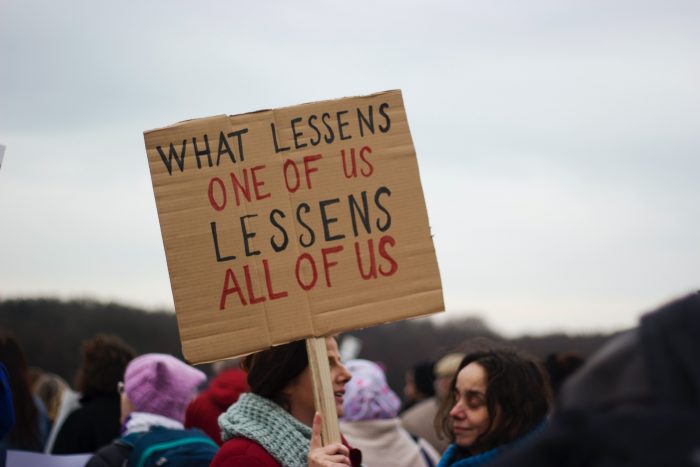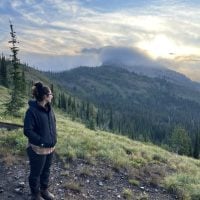Since I know we all are overwhelmed, scared, and exhausted, I’ll keep this short.
I’m doing my best to dip my toe into a fiery situation that I, as a white person, have more privilege and safety existing in than others.
Over the weekend, I spent some time out in my community of Minneapolis—a city deeply built on racial injustice that is throwing that disparity into the spotlight, because it is time.
Unfortunately, during this upheaval and collective time of protest, groups of individuals are choosing to cause harm—and come to destroy both my city and the people in it whom I care about.
They come to take advantage of the protests of Minneapolis, filled with black, brown, indigenous, and minority people, and paint those communities in harmful lights and blame them for damage, while also looting and stealing for themselves.
In all of that messiness, I’ve seen some of the purest forms of community care of my life.
Many, if not most, locals are at risk during a pandemic when interacting and being out of the house are dangerous for their health. These locals are doubly putting themselves at risk of attack by outsiders to do something for their neighbors and their communities.
I’ve seen churches and restaurants converted into food shelves where everyone is coming and going. I’ve seen people get together to move multiple carloads of food to people and locations that need it.
I’ve also seen those same churches and restaurants converted into makeshift hospitals to provide free medical care for those injured in riots who were pepper-sprayed and gassed or run into by semi-trucks.
I’ve seen therapists and crisis counselors show up at these locations to help others manage stress, and large groups of communities fill destroyed areas to help with cleanup.
This is what happens: we as communities are tighter knit than we realize, but when sh*t goes down, we show up.
Social support—or community care—is something that makes trauma manageable for everyone. It outright reduces our fear and the impact of that fear months later.
A real outcome of our fear of leaving our houses for the outcome of getting shot—either by white supremacists or a police officer—is that we struggle to leave our houses weeks or months after the danger is over.
Having others help us through this, working with others to improve what’s happening, is what supports our healing—now, and months from now.
Now, if ever, is a time for community care.
If you’d like, throw what you’re doing for our communities right now below in the comment section.












Read 0 comments and reply